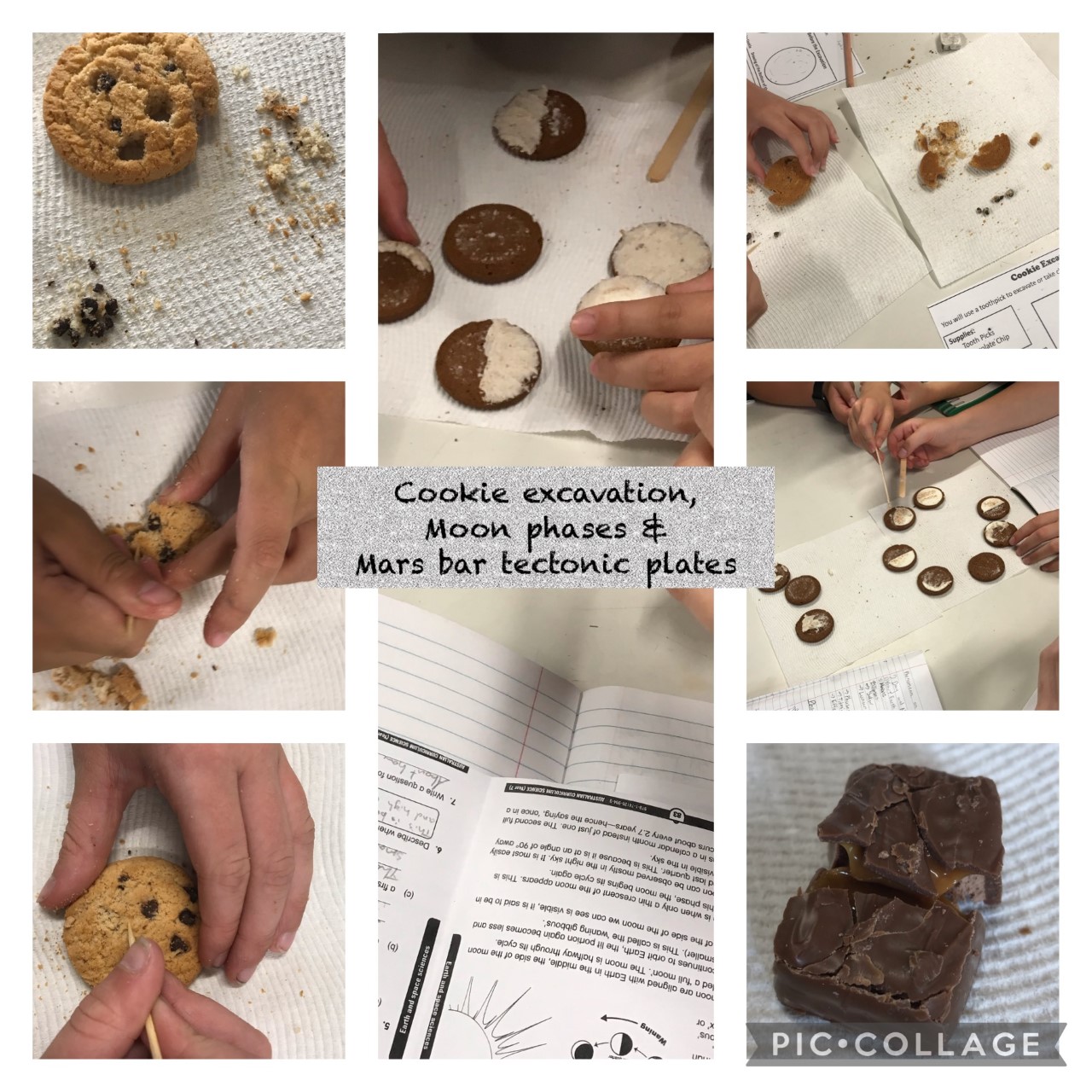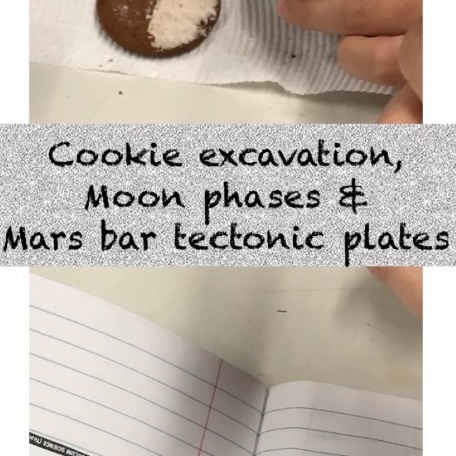This term we have been having lots of fun learning about Earth & Space Sciences.
We began the year refreshing our scientific thinking with a "what's in the box" challenge. With 6 sealed containers, there was much debate about what could be inside, and exasperation that we didn't find out - in reality, sometimes in science we don't find the answer and what we are left with is a good hypothesis based on the best data collected with scientific equipment and checked with our scientific peers. We considered how old Earth is, and the different eras of life on Earth, including examining trilobite and ammonite fossils, petrified wood, and various rocks and minerals including obsidian and fool's gold.
Year 4 & 4/ 5 students have looked at the rock cycle, and weathering & erosion, including considering how landforms like Uluru, Remarkable Rocks, the Sugarloaf, Granite Island & the 12 Apostles formed and changed over time. We even looked at some pictures of Mars that show geological evidence of past weathering and erosion patterns that mean there must once have been liquid water on Mars! We've also been Palaeontologists for a day and dug for choc chip "fossils" in cookie "rocks", and what makes up soil.
Year 4/5, 5 & 5/6 students have been learning about our Solar System. You might have seen a "pocket solar system" come home or heard the Planets Song (https://www.youtube.com/watch?v=x9UWNBTR6_I). We were amazed to think about all of the empty space in between the planets, especially the gas giants past the Asteroid Belt, and to learn that there are 5 dwarf planets in our solar system and that all 4 gas giants have rings! We watched the Perseverance Mars Rover landing footage from 18 February (https://mars.nasa.gov/mars2020/multimedia/videos/?v=461), learned a little about its mission and checked in from time to time on the images and information being sent back to Earth.
Last week many year 5, 6, & 7 classes dialled in to a video call with NASA Jet Propulsion Laboratory (JPL) Propulsion Engineer Todd Barber (https://solarsystem.nasa.gov/people/302/todd-j-barber/). He spoke about his role on the Mars 2020 Perseverance mission, and in monitoring the Voyager spacecraft. Students were able to ask questions and were interested to find out that NASA & Space X aren't rivals, that Perseverance is collecting rock samples to one day be returned to Earth, and that it has a laser to vaporise rocks and investigate their materials. Todd answered many of our questions, including that the stress of the timelines involved are the worst part of his job.
Year 5/6 & 6 students have been learning about the science and impact of natural disasters, both through geological events and extreme weather - such as volcanoes, earthquakes, tsunami, cyclones, floods, & droughts. We looked at Geoscience Australia's real time data (https://earthquakes.ga.gov.au/) to see the recent NZ earthquakes and discussed why we don't get significant earthquakes in Adelaide but that we can get them, as well as the NSW floods and the Icelandic Volcano that erupted for the first time in 6000 years! We looked at Earth's internal structure and modelled three different movements of tectonic plates during earthquakes using mini-mars bars - the gooey caramel is perfect to model the oozing magma of Earth's mantle.
Year 7 students have been learning about the phenomena on Earth that are caused by it being a planet in space, for example the moon causing tides, eclipses and having phases. We considered different hypotheses for why Earth has seasons and learned that it's nothing to do with distance from the sun but rather that the 23.5-degree tilt of Earth's axis means in summer the energy from the sun is more concentrated on that part of the globe and in winter the energy from the sun is more diffuse. We learnt about solstice and equinox, and modelled the moon phases with Delta Cream cookies.
In Term 2 we will be learning about Physics, including forces and motion, light energy, electricity, and Newton's laws of motion.

Miriam Doull, 4-7 Science

